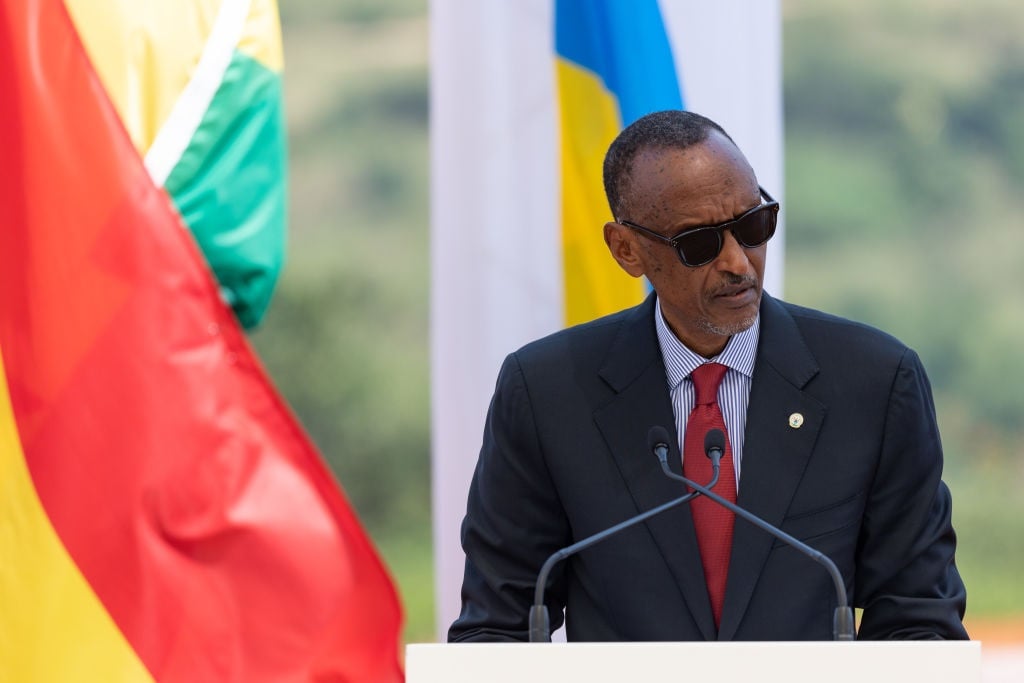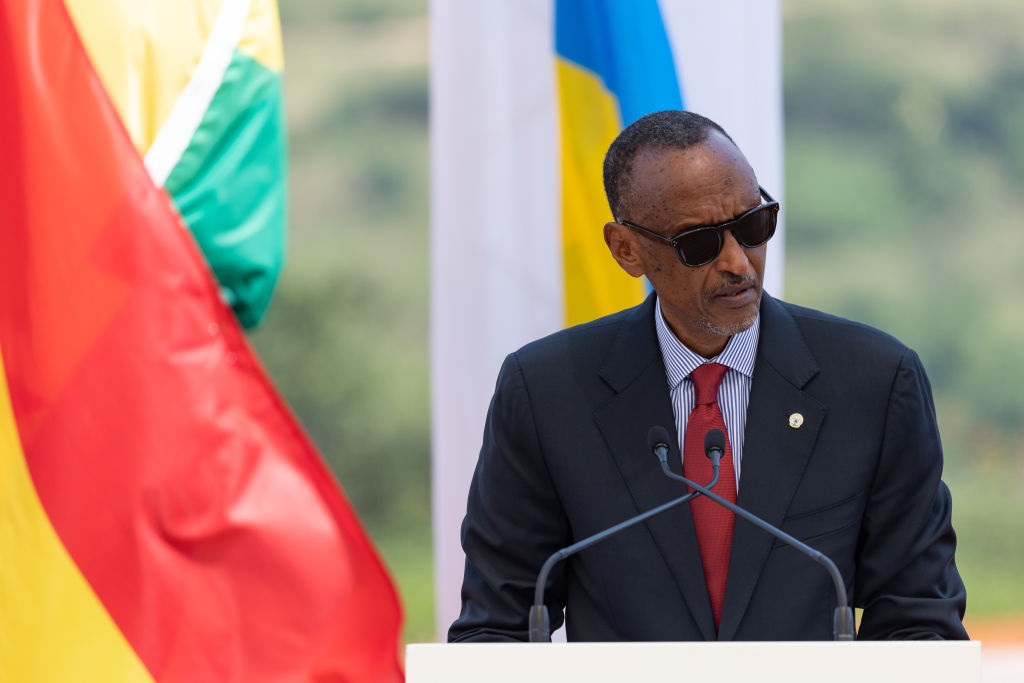

The President of Rwanda, Paul Kagame.
Luke Dray/Getty Images
- Rwanda says it will no longer sit back and watch as its security is under threat from the DRC.
- Kigali accuses the international community of failing to rein in the DRC for working with FDLR rebels.
- DRC President Felix Tshisekedi told the UN Security Council that conflict in the east could affect general elections in December.
Rwanda has declared that it will no longer accept what it called the trivialisation of its security concerns amid a series of violations of its airspace and land boundaries by the Democratic Republic of Congo (DRC).
In a statement, Rwanda said its security forces were ready to “act to prevent any cross-border threat, proportionately to its magnitude, origin, and nature”.
Last year in November an uncleared DRC-owned Sukhoi-25 fighter jet briefly landed at Rwanda’s Rubavu Airport in its Western Province.
The DRC government acknowledged this act but didn’t offer an apology.
A similar act occurred in January this year when Rwanda detected another DRC fighter jet flying low on its territory and the Rwanda Defence Forces (RDF) shot at it.
READ | Congo president says unrest in east could disrupt elections
Rwanda was blamed for allegedly supporting the M23 rebels in the eastern DRC, a claim that President Paul Kagame rejected despite overwhelming evidence presented by the United Nations (UN).
Rwanda claimed the DRC was working with the Democratic Forces for the Liberation of Rwanda (FDLR), a rebel group accused of destabilising Rwanda. Human rights groups have also linked the DRC to FDLR.
Rwanda said the international community had failed in finding a peaceful solution in a conflict that stands to compromise the stability of the East African Community (EAC).
Rwandan authorities said:
The repeated failure by the international community to condemn the DRC government for the preservation of the FDLR encourages DRC to continue arming and fighting alongside this genocidal militia, which has conducted cross-border attacks in Rwanda while embedded with the Congolese army (FARDC).
“This constitutes a direct and serious threat to Rwanda’s security. The FDLR is not a benign or inconsequential force, and the ultimate goal of its partnership with FARDC is to attack Rwanda.
“Similarly, the purpose of unchecked hate speech and public incitement against Tutsi is to mobilise the population for future atrocities and ethnic cleansing, in the dangerous context of electoral competition,” they added.
General elections are due in the DRC on 20 December.
Already, DRC President Felix Tshisekedi, long accused by Kagame of using the conflict in the eastern part of the country to compromise the elections, has confirmed that the conflict will endanger the smooth running of polls.
He said addressing the UN Human Rights Council.
The persistence of the war in the east of our country risks jeopardising the electoral process, which is already under way, due to a massive displacement of people from combat zones, the insecurity, and the inaccessibility of these areas.
Rwanda is now preparing its army for defence because the DRC was allegedly “deploying new hardware capabilities and foreign mercenaries in the common border area” of the two nations.
At the AU Summit two weeks ago in Addis Ababa, EAC leaders held a mini summit on the sidelines and were urged to stick to decisions made under the Nairobi and Luanda processes.
The News24 Africa Desk is supported by the Hanns Seidel Foundation. The stories produced through the Africa Desk and the opinions and statements that may be contained herein do not reflect those of the Hanns Seidel Foundation.

